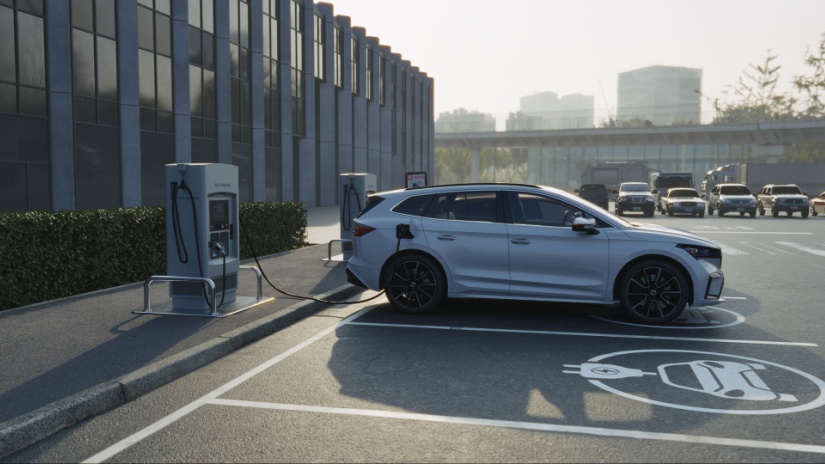The costs of charging an electric car in Australia

Electric vehicles are seen as the future of transport, offering both lower emissions and savings on fuel. However, one key concern for Australians thinking about switching is: What’s the cost of charging an electric car? This guide explores the various costs involved with charging an electric vehicle in Australia, helping you get the most out of your investment.
In short, charging your car at home with solar panels is the most affordable option, while using a public fast charger is the priciest. However, the answer isn't as straightforward as it seems.
The cost of charging depends on several factors, including the method and type of technology you use. These choices can greatly influence how much you’ll end up paying.
Understanding the basics of charging your electric car
Before we look at costs, it’s helpful to know how charging works for electric vehicles (EVs), whether at home or in public. In Australia, there are two main types of chargers: AC and DC.
| Charger type | Location | Description | Charging time |
| AC charger | Home, shopping centres, car parks | Used for long periods of charging, ideal for extended daytime or overnight use. | Slower charging |
| Level 1 AC | Home | Plugs into a standard power outlet (less common in Australia) | Slow charging speed |
| Level 2 AC | Home, shopping centres, car parks | Requires a dedicated charging unit, most popular choice for EV units in Australia | Faster than level 1 |
| DC charger | Highways, inner-city areas | Also called 'fast chargers', commonly found in areas with limited parking | Extremely fast charging |
| Can charge 100km worth of driving in 3 to 40 minutes |
Electric vehicles run on electricity, not petrol or diesel. The electricity powers the motor, which moves the car.
Charging an EV can be done through a household power socket, a wall-mounted charging unit in your garage, or a public charging station located at service stations, shopping centres, and car parks.
How much you pay for charging depends on several factors, including your vehicle’s battery size, the speed of the charger, the time you choose to charge, and whether you’re using a public or council-run station.
With so many factors affecting the cost, answering the question "How much does it cost to charge an electric car in Australia?" isn’t simple.
Let’s break down the different scenarios.
Charging at home
When you use a standard domestic power outlet to charge your electric vehicle (EV), you should expect a lengthy charging time. This is because a regular power outlet delivers electricity to the battery at a slower rate.
The cost of charging will match the rate you pay for other household appliances using the same outlet, whether it’s day or night. However, if you can take advantage of off-peak electricity rates, typically available during late-night hours, charging your car can be more affordable.
For example, if your electricity rate is 35 cents per kilowatt-hour (kWh) and you’re charging a 50 kWh battery from empty, the total cost would be $17.50 (35 cents multiplied by 50).
Council charging stations
Many local councils now operate electric vehicle (EV) fleets and have set up chargers at their offices and public car parks. These chargers are sometimes free, but keep in mind they tend to be slower, usually around 12 to 14 kW. If you’re asking whether EV charging stations are free in Australia, these council chargers are a good option to look for.
If you’re out shopping, using one of these free chargers can be a convenient way to add some charge to your car. Just be considerate and avoid leaving your car on the charger for too long if others are waiting.
One thing to note is that you might have to pay for parking at the location where the free charger is. Sometimes, the cost of parking can exceed the value of the charge you get for your car.
Wall-mounted charger
Using a wall-mounted charger, often referred to as a Level 2 charger, will speed up the charging process compared to a standard power outlet. However, the cost per kilowatt-hour (kWh) remains the same as with regular outlet charging. The trade-off is the additional expense of purchasing and installing the wall-mounted unit. If faster charging isn’t essential for you, the extra cost might not be justified.
Charging with solar
If you have solar panels installed on your home or workplace, you can reduce charging costs by powering your car while the sun is out. However, if your car charges faster than your solar panels can supply energy (especially if other appliances are using power at the same time), you may need to supplement the charge with electricity from the grid.
Using solar panels to charge your car is a fantastic way to save on energy costs and be environmentally friendly. Just keep in mind that you might want to use your car during daylight hours, which is when the sun is shining and your solar panels are generating power.
Commercial charging stations
In Australia, commercial charging stations are still being developed, and their rollout is quite slow. There are two main types of these stations: one charges your car at up to 50 kW, while the other can provide a much faster charge of 350 kW. However, not all cars can take advantage of the fastest chargers.
Smaller, more affordable EVs might only support a maximum charge rate of 40 kW. If that's the case, using a 350 kW charger won’t speed up your charging time—it will still be limited to 40 kW, but you'll be paying for the faster rate.
For EVs with larger batteries, you might be able to use the fastest chargers at around 250 kW, though no cars currently use the full 350 kW rate.
Typically, you’ll pay about 45 cents per kWh at a 50 kW station and around 65 cents per kWh at the faster 350 kW unit. This is significantly more expensive than home charging, often around 50% more.
If you're travelling and need to recharge, commercial stations are your best option. Just keep in mind that charging spaces can be limited, especially during peak times like long weekends and school holidays. For those concerned about charging time, these fast commercial chargers are the way to go.
What about Tesla charging stations?
Tesla’s Superchargers are generally designed for Tesla vehicles, but a few locations in regional New South Wales allow non-Tesla cars to charge. However, these spots are relatively scarce. To use these stations, non-Tesla owners must download the Tesla charging app, which will require sharing personal details.
Charging costs are higher for non-Tesla vehicles. At 79 cents per kWh, Tesla's rates are among the highest in Australia. Additionally, Tesla imposes idle fees if a car remains plugged in after fully charging. These fees can be up to $1 per minute, meaning it's important to move your vehicle promptly once charging is complete to avoid extra costs.
For Tesla owners, the charging process is more streamlined, with rates generally lower than for non-Tesla cars. It's also worth considering the extensive Tesla charging network, which provides convenient access to fast charging across Australia for Tesla vehicles.
How to charge an electric car
Charging an electric car is straightforward once you know the basics. Typically, you'll use a smartphone app that links your account to the charger you wish to use. Several companies offer charging apps, so it's a good idea to download all of them to ensure you're prepared no matter which charger you come across.
It's also important to know which type of charging port your car uses. Most EVs are equipped with either a CHAdeMO or CCS port, and each requires specific hardware for charging. Ensure you have the correct cables and connectors for home charging.
Charging your EV is usually a simple process, assuming the app and charger are functioning correctly. However, in areas with poor internet connectivity, you might encounter issues with the app or find that the charger is out of service. In such cases, contacting customer support or a helpline is your best option for assistance.
Being prepared with the right apps and equipment can make the charging experience much smoother.
The benefits of charging electric cars
| Benefit | Description |
| Lower fuel costs | Typically cheaper to charge compared to refuelling a petrol or diesel car |
| Reduced maintenance costs | EVs have fewer moving parts than internal combustion engines, which leads to lower maintenance and repair costs |
| Government incentives | Tax rebates, grants and incentives for switching to EV |
| Reduced greenhouse gases | EVs produce zero tailpipe emissions, reducing greenhouse gases and contributing to cleaner air |
| Lower noise pollution | Electric cars are far quieter than combustion engines, reducing noise issues in urban areas |
| Reduced dependence on fossil fuels | Charging an EV can be done with renewable energy resources, decreasing reliance on fossil fuels |
| Improved air quality | Lowered levels of harmful pollutants like nitrogen oxides and particulate matter |
| Long term cost savings | The upfront costs may be higher, but the ongoing costs of operating and owning an EV can be lower due to saving on fuel and maintenance |
| Energy efficiency | Electric motors are more efficient than combustion engines, converting high percentages of energy from the battery into the movement of the vehicle. |
The bottom line
Essentially, if you frequently rely on the most expensive commercial chargers—such as if you're constantly on the road for work—an electric vehicle (EV) might not be as cost-effective as you expect. For example, if you charge your EV at a fast charger costing 65 cents per kWh and you need to add 50 kWh, the total cost would be $32.50. This amount of charge would give you nearly 300 km of driving range, assuming your vehicle uses about 17 kWh to cover 100 km.
In comparison, a modern petrol car with a fuel consumption rate of 8.0 litres per 100 km would use 24 litres of fuel for the same 300 km trip. At today's fuel prices of around $2 per litre, this amounts to $48. If petrol prices drop to $1.50 per litre, the cost for the same journey would be $36, bringing it closer to the cost of charging an EV and eliminating the waiting time associated with charging.
However, if you charge your EV at home and use it primarily for city driving, where it is most efficient, the electric car can have a significant cost advantage. It's important to weigh these factors based on your driving patterns and charging habits.
Looking for a budget-friendly electricity plan?
Contacting the team at Compare Broadband on 1300 790 106 is the best thing that you can do today if you’re looking to make good savings on your electric costs. You should be able to charge your car without paying through the nose, and our team can help you to find the best electricity plan for charging your car in your area.

